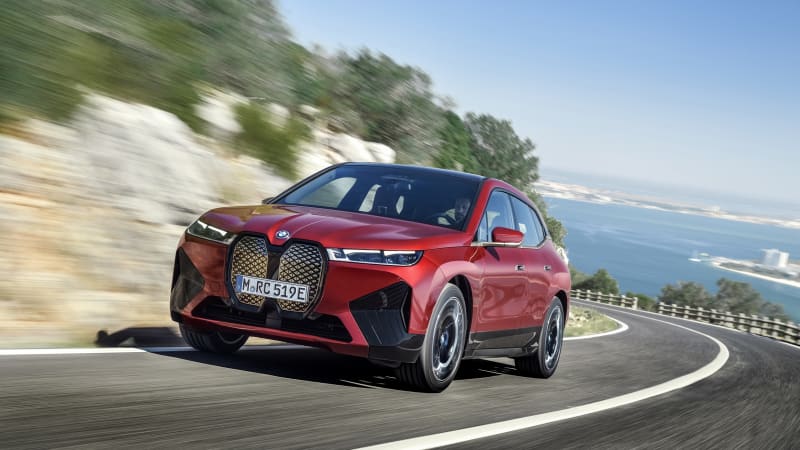
Modular vehicle architectures have become the norm in the automotive industry, but BMW will take flexibility to a new level by putting a vast majority of its battery- and piston-powered cars on the same platform during the 2020s. It announced its upcoming Neue Klasse architecture will ultimately replace the UKL and CLAR units it currently uses.
Due out in 2025, the Neue Klasse platform will underpin a new generation of EVs, including some whose proportions will be different than what we’re used to seeing from BMW. An electric motor requires less space than a four-, six- or eight-cylinder engine, so designers can give EVs short overhangs (as long as they take safety regulations into account) and a long wheelbase. However, most of the traditionally-proportioned models we already know and love, like the 3 Series and the X5, will also move to the Neue Klasse platform during the 2020s, according to Automotive News.
As of writing, BMW’s core models are underpinned by two basic platforms: UKL and CLAR. UKL is found under front-wheel-drive cars such as the Mini Hardtop, the 1 Series hatchback and the 2 Series Gran Coupe. CLAR-based nameplates include rear-wheel-drive cars such as the 3, 5, 7 and 8 Series, plus the X5 and the X6. Both can be configured with all-wheel-drive, and both can accommodate a gasoline-electric plug-in hybrid powertrain.
These guidelines won’t change as the range shifts to the Neue Klasse underpinnings during the second half of the 2020s. By making it modular, BMW will be able to build a rear-wheel-drive 3 Series, an all-wheel-drive X5, a front-wheel-drive 1 Series, an electric sedan with twin motors, and a hydrogen-electric crossover using the same basic technology, and presumably on the same assembly line. As we previously reported, Neue Klasse-based models will be positioned in many market segments, ranging from mass-produced cars to high-performance M models.
BMW’s strategy is unusual; its peers and rivals are pouring a substantial amount of money into the development of electric-only architectures. Volkswagen can’t power an MEB-based car with a turbo four, for example. As its name implies, Mercedes-Benz’s Modular Electric Architecture (MEA) will underpin exclusively electric models. By boldly taking a different route, BMW will leverage the benefits of economies of scale and, in theory, end up with a simpler and more flexible production process. Whether EV sales grow or fall, BMW will be able to keep up with demand.
Electric cars will represent about 50% of BMW’s global sales by 2030, according to executives. Mini will become electric-only by the turn of the coming decade. However, the Munich-based company has made it clear that it’s too early to write the internal combustion engine’s obituary. CEO Oliver Zipse said BMW “has no plans to stop developing internal combustion engines” because demand “will remain robust for many years to come.” Making a versatile, one-size-fits-all platform underlines the company’s commitment to high-octane powertrains.
Related Video:
